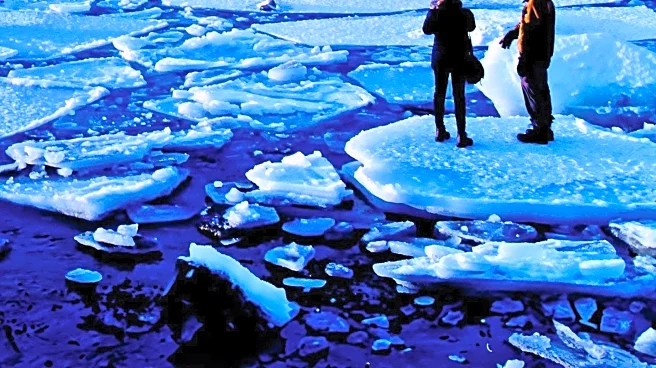What's Happening?
Tourists are increasingly considering geopolitical tensions, currency fluctuations, and extreme weather conditions when planning vacations. Popular European destinations like France, Spain, and Croatia have experienced record-breaking heat, leading to wildfires. Meanwhile, geopolitical conflicts in the Middle East have affected nearby tourist spots like Cyprus. Economic concerns, partly linked to President Trump's tariff policies, have made travelers more cautious with spending. The weakening U.S. dollar has reduced purchasing power abroad, prompting American travelers to seek destinations where their money goes further, such as Latin America and Southeast Asia. Package deals that lock in rates are becoming popular as a financial strategy. Political tensions and reports of tourists facing border control issues have led to a decline in U.S. travel bookings, according to TUI, Europe's largest tour operator.
Why It's Important?
The evolving travel landscape highlights the impact of global economic and political factors on tourism. The weakening U.S. dollar affects American travelers' choices, potentially boosting tourism in regions where the dollar's value is stronger. The decline in U.S. travel bookings could have economic implications for the U.S. tourism industry. Additionally, the shift towards cooler destinations, termed 'coolcations,' reflects changing consumer preferences in response to climate change. This trend could influence tourism patterns and economic activity in traditionally popular destinations. The focus on package deals suggests a growing demand for financial predictability in travel planning.
What's Next?
Travel companies may need to adapt to changing consumer preferences by offering more flexible and financially secure travel options. The tourism industry might see increased interest in destinations perceived as safer or more economically viable. As geopolitical tensions and climate change continue to affect travel decisions, industry stakeholders may need to address these challenges through strategic planning and marketing. The shift towards cooler destinations could lead to increased investment in infrastructure and services in these areas.
Beyond the Headlines
The emphasis on intentional travel choices reflects broader societal shifts towards conscious consumerism. Travelers are prioritizing destinations that align with their values and interests, potentially leading to more sustainable tourism practices. The impact of climate change on travel patterns underscores the need for global cooperation in addressing environmental challenges. The tourism industry's response to these trends could influence cultural exchanges and international relations.











